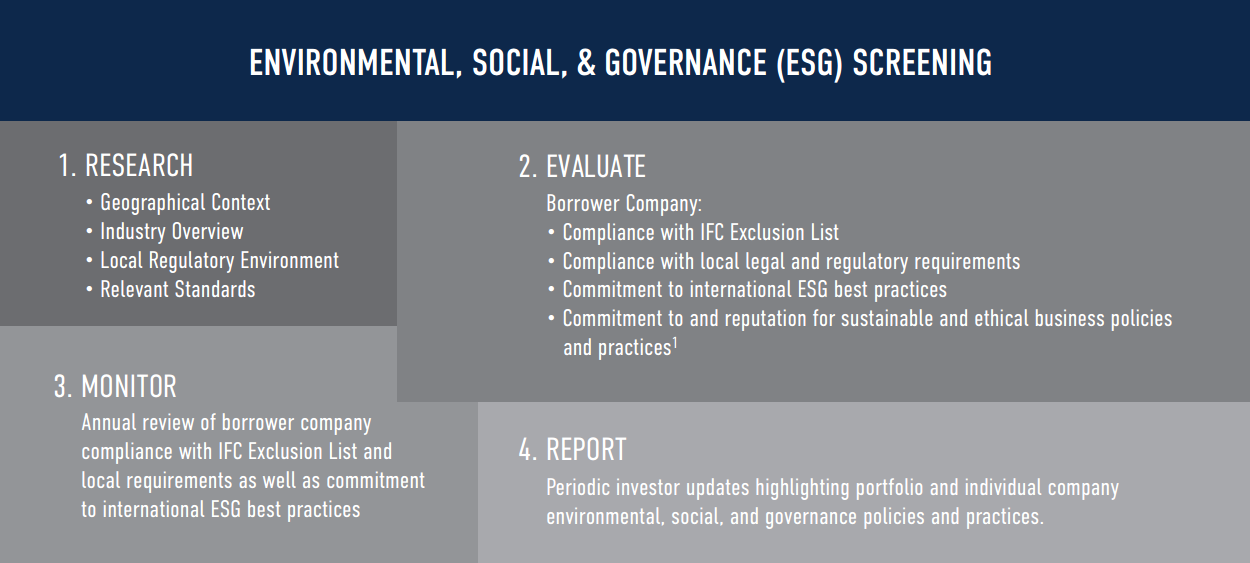TriLinc’s ESG and impact assessment and evaluation methodologies are fully integrated into our investment and portfolio management processes and procedures.
ESG Screening
TriLinc believes that a complete assessment of a borrower company is critical to understanding the potential risk and return of the investment; therefore, in addition to financial analysis, TriLinc evaluates the company’s ESG policies and practices, specifically relating to the company’s stewardship of our environment, their management of relationships with their employees local suppliers and contractors, customers, and local communities, and their governance practices that serve to protect their capital providers.
Additionally, the TriLinc conforms to the IFC Exclusion List, which prohibits investment in types of businesses such as:
- Production of weapons, liquor, tobacco, radioactive products, unbonded asbestos fibers, or any product or activity deemed illegal under host country laws or international conventions
- Gambling enterprises
- Certain forestry and fishing
- Any enterprise that involves exploitative forms of forced or child labor
Businesses that do not meet TriLinc’s ESG requirements or those whose activities are detailed within the IFC Exclusion List will not be eligible for TriLinc funding. On a quarterly basis, TriLinc’s Investment Partner complete a Quarterly Compliance Update Memorandum, in which the Investment Partner attests that they have reviewed each borrower to monitor that they are not in violation of any of TriLinc’s ESG-related criteria. Annually, the borrower company recertifies their commitment to the ESG representations on the screen.
TriLinc tailors its ESG and impact research and assessment process to each borrower-company’s industry and activities, and executes it concurrently with TriLinc’s credit approval process.

Read about how we track impact >
Comprehensive Diversification >
1Sustainable and ethical business practices include, but are not limited to energy efficiency initiatives, fair hiring policies, provision of employee healthcare, transparent financial reporting, and effective systems of internal controls and risk mitigation.
